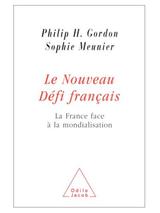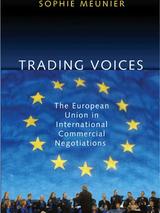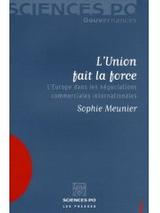1993
1994
Abstract
Was the European Court of Justice a key actor in the "relaunching" of European integration in the 1980s? This article examines the crucial political role that was played by the Court with its Cassis de Dijon judgment in the rejuvenation EC harmonization policy and the development of the Single European Act. The authors challenge the dominant view that the Court's legal decisions in themselves create policy consequences, or that legal verdicts reflect the views of dominant member states, so as to create focal points around which a policy consensus emerges. They argue, instead, that the Cassis verdict acted as a catalyst, provoking a political response by the Commission, which attempted to capitalize on the verdict to create a "new approach to harmonization." This political entrepreneurship by the Commission triggered the mobilization of interest groups that lobbied their national governments for and against mutual recognition. Generalizing from the case, this article concludes that the Court performs three crucial roles in the EC policy-making process: opening political access to self-interested individuals, launching ideas into the policy-making arena, and provoking political responses through bold argumentation and unpopular verdicts.
1995
1998
1999
Abstract
Although the Member States of the European Union (EU) have long since relinquished their power to act as autonomous actors in international trade negotiations, they have now chosen to regain some of their lost trade sovereignty. Neither the European Court of Justice's (ECJ's) 1994 opinion, nor the 1997 reform of the trade policy process at Amsterdam delegated full negotiating authority to the Commission over the 'new trade issues' of services and intellectual property. Instead, Member States settled on a hybrid form of decision-making to enable ad hoc rather than structural delegation of competence. Was this a rollback of EU competence? If so, why has it occurred in the EU's oldest and most successfully integrated, policy sector? A shift in the perceived trade-off between economic interests and ideological bias on the part of key Member States can explain such a change. This article also explores the consequences for the future conduct of the EU's trade policy and its influence in shaping the world political economy, as well as for the evolving pattern of federal allocation of jurisdiction in the EU.
2000
Abstract
This article studies the determinants of international bargaining power in instances of trade negotiations between the European Union and the United States. The authors’ central hypothesis is that an appraisal of the US–EU trade relationship requires an understanding of the ways in which “domestic” political institutions shape the bargaining behavior of international actors. In particular, this article argues that the frequent EU “successes” in its negotiations with the US are the result of the bargaining power that its unique institutional arrangements grant its negotiators. In order to explain the distributional outcomes of international trade negotiations, the authors explore the “Schelling conjecture” and analyze why it is particularly relevant to the understanding of the unique bargaining power of EU negotiators when they are confronted with their American counterparts. To examine the explanatory power of domestic institutions in episodes of trade negotiations, the article analyzes the US-EC Uruguay Round agricultural negotiations (1986–1993).
2001

Abstract
The French Challenge deals with France's effort to adapt to globalization and its consequences for France's economy, cultural identity, domestic politics, and foreign relations. The authors begin by analyzing the structural transformation of the French economy, driven first by liberalization within the European Union and more recently by globalization. By examining a wide variety of possible measures of globalization and liberalization, the authors conclude that the French economy's adaptation has been far reaching and largely successful, even if French leaders prefer to downplay the extent of these changes in response to political pressures and public opinion. They call this adaptation "globalization by stealth."
The authors also examine the relationship between trade, culture, and identity and explain why globalization has rendered the three inseparable. They show how globalization is contributing to the restructuring of the traditional French political spectrum and blurring the traditional differences between left and right. Finally, they explore France's effort to tame globalization—maîtriser la mondialisation—and the possible consequences and lessons of the French stance for the rest of the world.
2002

Abstract
S’adapter ou disparaître sous la domination américaine : la globalisation économique représente un défi pour toutes les sociétés. Il est toutefois particulièrement dramatique en France, du fait de notre tradition étatique, de notre souci de justice sociale, de notre attachement à notre langue, à notre culture, à notre identité, ainsi que de notre vieille rivalité avec les États-Unis.
Beaucoup de Français s’accordent à penser que la mondialisation comporte des bienfaits, mais ils sont nombreux à s’inquiéter de ses effets sur la répartition des revenus, l’emploi, la culture et la position de la France dans le monde. Qu’en est-il vraiment? La France ne s’adapte-t-elle pas plus nettement qu’on ne veut bien le dire ? Et l’idée de " mondialisation maîtrisée "? Peut-elle devenir réalité ou bien est-ce un mythe inventé par les hommes politiques afin de rassurer le public?
"Un travail impressionnant pour mettre au jour les racines historiques et intellectuelles de la résistance française à la globalisation et pour montrer comment la France réussit à s’adapter sans s’américaniser." Stanley Hoffmann.
2003
2004
Abstract
This article examines how globalization and Europeanization interact with each other, either in a centrifugal or in a centripetal way, to alter French politics. It analyzes how globalization has redefined domestic politics in France and it explores whether Europeanization has accelerated or hindered these transformations. It studies in turn the impact of globalization and Europeanization on power, preferences and institutions — three essential components of a country’s domestic politics. The central argument is that globalization and Europeanization not only have transformed the nature of domestic politics, but are also becoming a new cleavage around which domestic politics are being structured.
2005

Abstract
The European Union, the world's foremost trader, is not an easy bargainer to deal with. Its twenty-five member states have relinquished most of their sovereignty in trade to the supranational level, and in international commercial negotiations, such as those conducted under the World Trade Organization, the EU speaks with a "single voice." This single voice has enabled the Brussels-based institution to impact the distributional outcomes of international trade negotiations and shape the global political economy.
Trading Voices is the most comprehensive book about the politics of trade policy in the EU and the role of the EU as a central actor in international commercial negotiations. Sophie Meunier explores how this pooling of trade policy-making and external representation affects the EU's bargaining power in international trade talks. Using institutionalist analysis, she argues that its complex institutional procedures and multiple masters have, more often than once, forced its trade partners to give in to an EU speaking with a single voice.
Through analysis of four transatlantic commercial negotiations over agriculture, public procurement, and civil aviation, Trading Voices explores the politics of international trade bargaining. It also addresses the salient political question of whether negotiating efficiency comes at the expense of democratic legitimacy. Finally, this book looks at how the EU, with its recent enlargement and proposed Constitution, might become an even more formidable rival to the United States in shaping globalization.

2006
Abstract
The EU is a formidable power in trade. Structurally, the sheer size of its market and its more than forty-year experience of negotiating international trade agreements have made it the most powerful trading bloc in the world. Much more problematically, the EU is also becoming a power through trade. Increasingly, it uses market access as a bargaining chip to obtain changes in the domestic arena of its trading partners, from labour standards to development policies, and in the international arena, from global governance to foreign policy. Is the EU up to its ambitions? This article examines the underpinnings of the EU’s power through trade across issue-areas and across settings (bilateral, inter-regional, global). It then analyses the major dilemmas associated with the exercise of trade power and argues that strategies of accommodation will need to be refined in each of these realms if the EU is to successfully transform its structural power into effective, and therefore legitimate, influence.
Abstract
The decade-long transatlantic banana dispute was not a traditional trade conflict stemming from antagonistic producers’ interests. Instead, this article argues that the banana dispute is one of the most complex illustrations of the legal and political difficulties created by the nesting and overlapping of international institutions and commitments. The contested Europe-wide banana policy was an artifact of nesting – the fruit of efforts to reconcile the single market with Lome´ obligations which then ran afoul of WTO rules. Using counter-factual analysis, this article explores how the nesting of international commitments contributed to creating the dispute, provided forum shopping opportunities which themselves complicated the options of decision-makers, and hindered resolution of what would otherwise be a pretty straightforward trade dispute. We then draw out implications from this case for the EU, an institution increasingly nested within multilateral mechanisms, and for the issue of the nesting of international institutions in general.
Abstract
Resistance to change seems to be a deeply ingrained trait of French national character, and therefore traditional political accounts of France emphasize historical continuity. Yet, France has changed considerably in the past two decades, whether in economic, social, or political terms. This article reviews Changing France: The Politics That Markets Make and, beyond this book, asks how France has and has not been transformed. The central argument is that this change has taken place for the most part in the shadows instead of being publicized and debated. This has led to an overwhelming feeling of malaise in society and to a crisis of political representation.
2007

